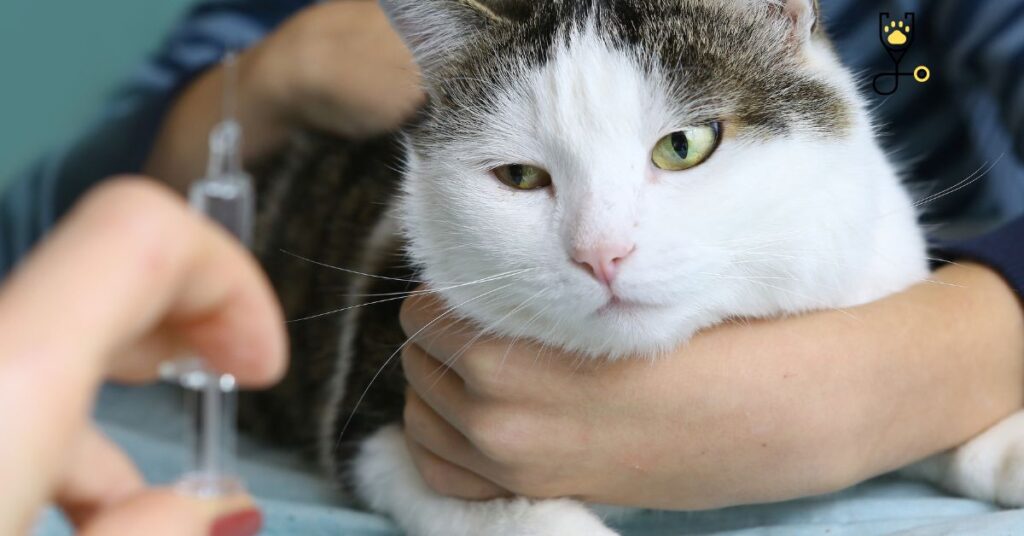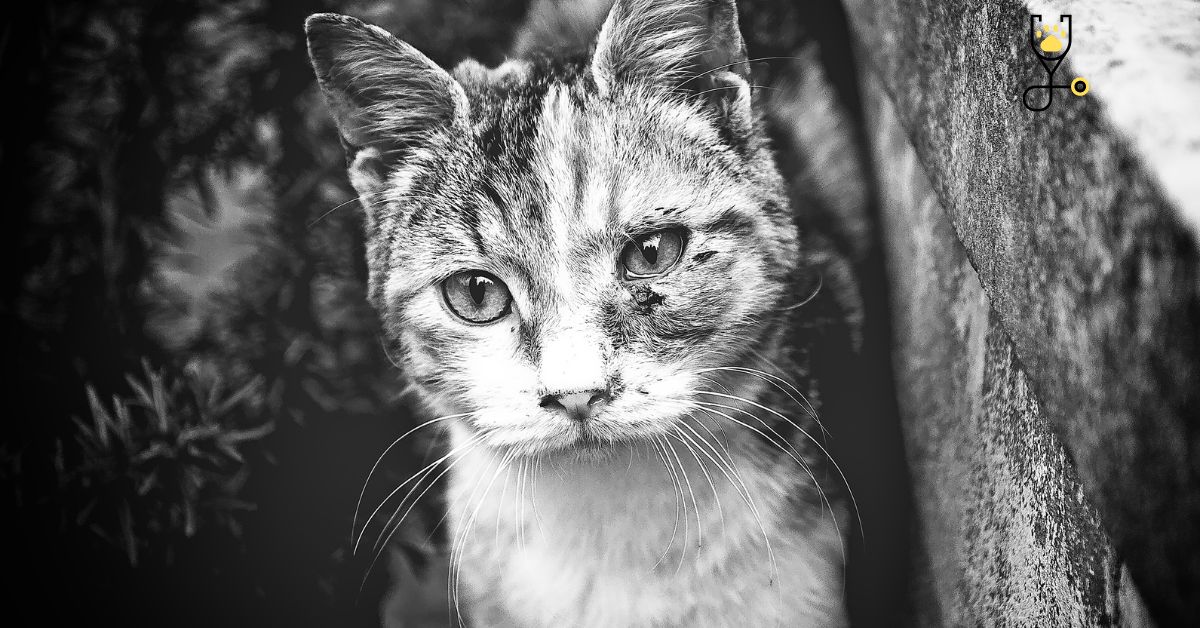Although rabies is often associated with dogs, it can also affect cats. In this post, we’ll take a look at the causes, symptoms, and treatments for rabies in cats. By understanding the risks and dangers associated with this disease, cat owners can better protect their pets from potential infection. Stay safe and keep your kitty healthy!
What is rabies?
Rabies is a virus that affects the central nervous system of mammals, including cats. It is a viral disease that is almost always fatal if left untreated. Rabies is passed through direct contact with the saliva of an infected animal. The virus spreads to other animals through biting or scratching, and can also be transmitted when needles or other veterinary tools used on an infected animal are not properly sterilized before us.
Can humans get rabies from cats?
Rabies is a virus that affects the central nervous system. It is primarily spread through the saliva of infected animals, often through a bite. The virus can also be spread if infected saliva comes into contact with an open wound or mucous membranes, such as the eyes, nose, or mouth. Once the virus enters the body, it travels to the brain, where it causes inflammation and death. Humans can get rabies from cats, but this is relatively rare. The CDC estimates that there are only one or two cases of human rabies in the United States each year. In most cases, these infections occur when people are bitten by infected animals while traveling in other countries. In order to reduce your risk of exposure to the virus, you should avoid contact with wild animals and be sure to have your cat vaccinated against rabies.
Causes of rabies in cats
1. Direct contact with an infected animal, such as through biting or scratching.
2. Exposure to saliva and other bodily fluids of an infected animal, such as by sharing food or water bowls.
3. Exposure to needles or other veterinary tools that were not properly sterilized after use on an infected cat.
4. Intimate contact with a cat who is not vaccinated against rabies and may be shedding the virus in its saliva or other bodily fluids.
5. Contact with bats, which are known to carry rabies and often bite without being noticed.
6. Improper handling of potentially rabid animals in the wild, such as skunks or raccoons, by people who have no knowledge of proper safety procedures for dealing with these types of creatures.
7. Exposure to wild carnivores, such as foxes and coyotes, which are sometimes infected with rabies and may bite or attack a cat.
8. Lack of vaccination against rabies for cats who are at high risk of being exposed to the virus in their environment.
Symptoms of rabies in cats
– Uncontrolled aggression and defensive behavior, even in cats that are typically social and friendly

– Extremely sensitive to touch and pain response: hissing, growling, snapping, or biting when handled
– Disorientation: circling, walking in odd patterns, or getting stuck in corners
– Loss of muscle control: drooling, paralysis in the hind legs progressing to the front legs, and difficulty swallowing
– Changes in vocalizations: making strange noises such as hissing, moaning, or screeching
– Strange behavior: unprovoked aggression, increased vocalization, excessive shyness or hiding.
– Difficulty walking or moving normally as if the cat is being restrained by a force
– Constant salivation or foaming at the mouth
– Dilated pupils with very little reaction to light sources
– Seizures or tremors of the limbs/head/body
– Paralysis and inability to control the movement of certain body parts
– Increased vocalization that sounds abnormal or strained
– Loss of appetite and weight loss you notice any of these symptoms in your cat, it is important to seek professional medical attention immediate
Treatments of rabies in cats

There is no known cure for rabies, and once symptoms appear, the disease is almost always fatal. If your cat has been exposed to the virus, it is important to seek professional medical attention immediately. Your veterinarian will likely recommend euthanasia as the most humane option for your pet. If you live in an area where rabies is common, it is important to take steps to protect your cat from exposure to the virus. The best way to do this is to have your cat vaccinated against rabies and to keep up-to-date on its vaccinations. You should also avoid contact with wild animals, especially if they are acting strangely or aggressively. If you must handle a potentially rabid animal, be sure to wear gloves and wash your hands thoroughly afterward. Finally, if you are bitten or scratched by an animal, it is important to seek medical attention immediately and to tell your doctor about the exposure.
Preventions of rabies in cats
-The best way to prevent rabies is to have your cat vaccinated against the virus and to keep up-to-date on its vaccinations.
-You should also avoid contact with wild animals, especially if they are acting strangely or aggressively.
-If you must handle a potentially rabid animal, be sure to wear gloves and wash your hands thoroughly afterward.
-Finally, if you are bitten or scratched by an animal, it is important to seek medical attention immediately and to tell your doctor about the exposure. Early diagnosis and treatment of rabies can be lifesaving.
-If you live in an area where rabies is common, it is important to take steps to protect your cat from exposure to the virus. The best way to do this is to have your cat vaccinated against rabies and to keep up-to-date on its vaccinations. You should also avoid contact with wild animals, especially if they are acting strangely or aggressively. If you must handle a potentially rabid animal, be sure to wear gloves and wash your hands thoroughly afterward. Finally, if you are bitten or scratched by an animal, it is important to seek medical attention immediately and to tell your doctor about the exposure. Early diagnosis and treatment of rabies can be lifesaving.
Prognosis of rabies in cats
Rabies is a fatal disease, and there is no known cure. If your cat has been exposed to the virus, it is important to seek professional medical attention immediately. Your veterinarian will likely recommend euthanasia as the most humane option for your pet. If you live in an area where rabies is common, it is important to take steps to protect your cat from exposure to the virus. The best way to do this is to have your cat vaccinated against rabies and to keep up-to-date on its vaccinations. You should also avoid contact with wild animals, especially if they are acting strangely or aggressively. If you must handle a potentially rabid animal, be sure to wear gloves and wash your hands thoroughly afterward. Finally, if you are bitten or scratched by an animal, it is important to seek medical attention immediately and to tell your doctor about the exposure. Early diagnosis and treatment of rabies can be lifesaving.
- Rabies is a serious disease that can be fatal to both humans and animals.
Conclusion of the above discussion on rabies in cats
Rabies is a serious disease that can be fatal to both humans and animals. If your cat has been exposed to the virus, it is important to seek professional medical attention immediately. Your veterinarian will likely recommend euthanasia as the most humane option for your pet. If you live in an area where rabies is common, it is important to take steps to protect your cat from exposure to the virus. The best way to do this is to have your cat vaccinated against rabies and to keep up-to-date on its vaccinations. You should also avoid contact with wild animals, especially if they are acting strangely or aggressively. If you must handle a potentially rabid animal, be sure to wear gloves and wash your hands thoroughly afterward. Finally, if you are bitten or scratched by an animal, it is important to seek medical attention immediately and to tell your doctor about the exposure. Early diagnosis and treatment of rabies can be lifesaving.
Frequently Asked Questions about rabies in cats
1. What are the symptoms of rabies in cats?
The most common symptoms of rabies in cats are changes in behavior, such as aggression, restlessness, and nervousness. Other symptoms may include fever, vomiting, loss of appetite, paralysis, and seizures.
2. How is rabies diagnosed in cats?
A veterinarian will typically diagnose rabies based on the animal’s symptoms and history of exposure to the virus. A rabies test can also be performed on the animal’s brain tissue.
3. How is rabies treated in cats?
There is no known cure for rabies, and the disease is almost always fatal. If your cat has been exposed to the virus, it is important to seek professional medical attention immediately. Your veterinarian will likely recommend euthanasia as the most humane option for your pet.
4. How can I prevent my cat from getting rabies?
The best way to prevent your cat from getting rabies is to have it vaccinated against the virus and to keep up-to-date on its vaccinations. You should also avoid contact with wild animals, especially if they are acting strangely or aggressively. If you must handle a potentially rabid animal, be sure to wear gloves and wash your hands thoroughly afterward. Finally, if you are bitten or scratched by an animal, it is important to seek medical attention immediately and to tell your doctor about the exposure. Early diagnosis and treatment of rabies can be lifesaving.
5. What should I do if I think my cat has been exposed to rabies?
If you think your cat has been exposed to rabies, it is important to seek professional medical attention immediately. Your veterinarian will likely recommend euthanasia as the most humane option for your pet. If you live in an area where rabies is common, it is important to take steps to protect your cat from exposure to the virus.







